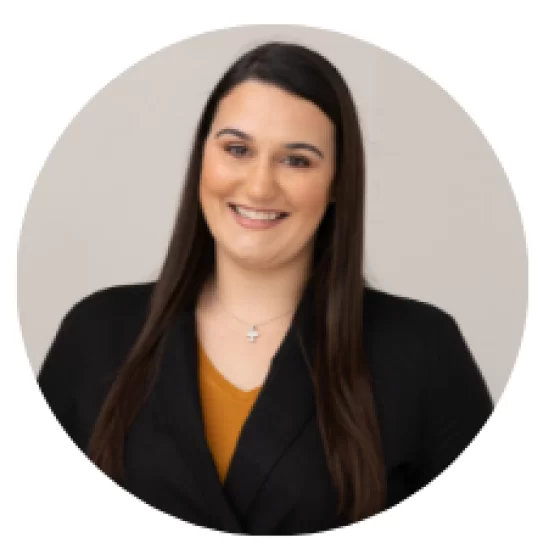Creating an Online Course is Easier Than you Think

Australia’s current social restrictions have seen many businesses turn to alternative methods of generating income streams. A great way of doing this has been monetizing their skills, knowledge and experience via creating an online course. The prospect may seem daunting at first but here at Bsale we have spoken to some experts who have told us it is much easier than you think! Here are the top tips to getting your own course up and running!
What is your best tip to save time when creating a course?
-
“Create the content first before you put it into your course software. Map it out and do some recordings and downloads, then create your software around it. The top tip to save time when creating the course itself is to make sure it's in small, digestible sections so the user has some "easy wins" and can process it." Paula Glynn
-
“If you want to quickly launch a course, I would recommend beginning with an introductory or starter course that gives people easy access to your subject matter expertise. Chances are that you’ve already got a lot of content in various formats that you can easily repurpose and consolidate into an online course. In such instances you could have your course up and running in as little as 2 days." Wendy Coombes
-
“Launching online courses is an ongoing process, not a once-off and you have a constant income. So plan how you will drive traffic to the course - webinars, Facebook lives, blogs and being interviewed on podcasts etc are all good ways to promote your course. Consider providing a free short course - maybe even just one video or workbook as a lead generator so people can get to know you and see the value in your courses.” Lauren Clemett
-
“Outsource what you aren't good at - copywriting, graphics design, web development etc.” Emma Blomfield
How long does it take to launch a course?
-
“I’ve seen people create an online course in a weekend, and others take 18 months. Realistically, it will take you a couple of weeks to pull together the content for the course and get it onto an online platform. But make sure you set yourself a clear deadline, and stick to it, otherwise it’s easy for the project to drag out.” Sam Winch
-
“It can take only 2 weeks to put it all together if you are willing to work in a focused way and you are across your content.” Katrena Friel.
-
“Depends on the content and how much detail you're offering. Generally speaking you should be able to get something up within a few weeks.” Emma Blomfield
What price could they sell their course for?
-
“This depends on the problem your course is solving. If it's how to buy an investment property and could save them $20,000, then a course might be worth $2000 to them for that. Make it relevant to the outcome and be clear on what they will get in exchange for what they pay - the outcome - Save money, make money, save time, make something easier.” Lauren Clemett
-
“Under $500 is the magic number.” Emma Blomfield
-
“E-courses range anywhere from $9.95 to $2000 however my biggest tip is, do not price your e-course based on the quantity of content, price it on the value you are giving. One value sentence is better than a paragraph of fluff.” Natasha Stewart
-
“Online courses come in different categories. As an indication, a starter course might sell for less than $100 whereas a flagship course or certificate course can sell for anywhere from $1500 to $4000 and more. These courses would not only have a greater volume of content but also may have a one to one or group coaching element to it so students can ask questions and have some level of direct access to the course tutor.” Wendy Coombes
-
"Price your program so people don't think about paying that amount. Under 50 and people will give it a go. Over 100 people start to think twice. Over 1000 you are making people second guess whether to buy it or can they live without it. Have a look at the price of online at the moment, check udemy.com, check entrepreneur.com all at a bargain-basement price. That is because of the current crisis but it is also because of the availability of free training, so check out LinkedIn Learning, YouTube, and everyone's free content in general. Ask yourself Why would they pay for your program? To get a decent price, add value and don't discount." Katrena Friel
Which platform do you recommend and why?
-
“There are some great platforms around to help you get your course online. If you want quick and easy, try a platform like MemberVault, This is my personal favourite at the moment, as it offers some cool features, amazing support, and it’s free for your first 100 users.” Sam Winch
-
“I recommend you use Yes Course, which is free and you only pay for each sale. That way you are not spending every month on a subscription with no revenue. You could also do it inside your website, but it is easier to use a system that specialises in it so you can put up your video, workbook, handouts, exercises, and make each topic interesting and interactive. Ask yourself, are you going to drop feed them a topic each week or month or are you going to give it to them all up front and allow them to just get on with it?” Katrena Friel
-
“Thinkific, hosting it on a third party platform means it won't slow your own website down.” Natasha Stewart
-
“Today there are a broad variety of platforms. Some, such as Udemy and Skillshare, have their own marketplace and will sell your course on your behalf (for which they take a commission). If you want to market and sell your own course there are platforms like Kajabi and Thinkific. I launched my course on Thinkific and like it for its flexibility. It lets you create your own landing page for each of your courses. It is easy to manage content and lets you upload text, video, audio and you can run student quizzes or surveys. You can drip your content out over a period of time if you wish to do so. It allows you to take payments, payment plans and you get your money instantly.” Wendy Coombes
-
”Learndash, because it's an affordable extension into WordPress or AccessAlley for high performance courses as it has very sophisticated integrations.” Paula Glynn
Above all, it is important to take the time and effort to make sure that going online is done thoughtfully, and with the right approach. Nataly Tormey, Founder of Parentmedic.co and online course creator of Online Baby First Aid warns, “ If they don't do it right, it can damage their entire brand and when Covid-19 is over, they have nothing to return to.”
If you are a business owner looking to diversify your income, now may be a great time to look into creating your own online course. Online courses are a great way to add value to your own personal product and brand, as well as working as a form of marketing in it’s own right. Following these tips from business owners who have experience in the field can help give your brand the head start to getting online.
If you are looking to purchase a business, see the 10,000+ businesses for sale on Bsale
About the Experts
Lauren Clemett, Co-Founder of The Audacious Agency
Lauren is an award-winning personal branding specialist and has advised a large number of global entrepreneurs in the construction of their courses - for both online and books, as well as training and coaching programs.
You can find Lauren on Linkedin
Nataly Tormey, Founder and online course creator of ParentMedic an Online Baby First Aid
Nataly is an education merchant, specific to the health industry. She develops, designs and brands health education, in-person and online.
Emma Blomfield, Interior Designer, Stylist and Mentor at Emma Blomfield
Emma offers an eCourse for homeowners to expand their decorating skill set and help plan a renovation.
You can find Emma on Linkedin
Katrena Friel, Business Coach at Becoming the Expert.
Katrena is a Business Coach to the Conscious. A Business Mentor to the Awakened. International Speaker | Award Winning Author for those that want to become an Expert in their Field of Excellence, through 7 streams of income. Katrena Friel is a master in public speaking, entrepreneurial leadership, business strategy, helping her clients start up their personal brand business making your soul purpose a reality.
You can find Katrena on Linkedin
Natasha Stewart, Founder of Business Jump.
Natasha runs an online business and helps other mums start online businesses. She also has a collective community of over 40,000 mums in business. Natasha has created an entry level DIY e-course and sold it successfully for $49 in light of COVID-19.
Wendy Coombes, Founder of The Inbound Marketing Coach
Wendy helps small businesses owners to get started with online marketing and marketing automation.
You can find Wendy on Linkedin

Paula Glynn, Course Creator of Click Academy.io and course architect at Pixelstorm.
Paula Glynn is a leading Google Ads Expert and digital strategist with over 9 years PPC experience and founder of Click Academy, an Online Course for Google Ads.
Sam Winch, Online Course
Guru at SamWich.com.au
Sam Winch helps busy business owners turn their content into courses, in fact building courses and content to suit diverse environments and audiences is the jam in her sandwich.
When she’s not busy creating courses, or making terrible sandwich puns about her name, she’s got her hands full wrangling 4 kids.
You can find Sam on Linkedin
Tags: business owner small business tips
About the author

Catherine Mangana
Customer Support
Catherine enjoys generating articles that highlight some of the opportunities that are now available for purchase on Bsale. She hails from a family of ...





